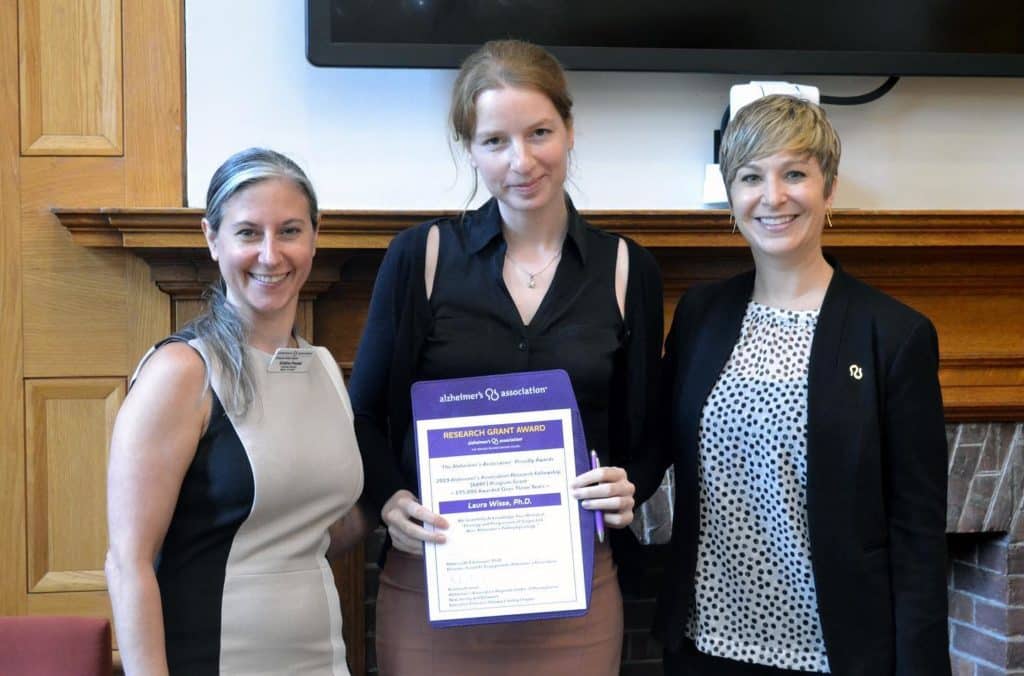
PMC’s Dr. Laura Wisse is flanked by Alzheimer’s Association Delaware Valley Chapter Executive Director Kristina Fransel and Dr. Rebecca Edelmayer, Alzheimer’s Association Director of Scientific Engagement after receiving a research grant award.
By Danny Yarnall
Former Penn Memory Center Scholar Laura Wisse, PhD, recently left the University of Pennsylvania to pursue an assistant professorship at Lund University in Sweden.
Dr. Wisse first came to the Penn Memory Center in 2014 for a post-doctoral fellowship after earning a PhD in Neuroscience and MSc in Epidemiology from Utrecht University in the Netherlands in 2014 and an MSc in Psychology from Leiden University in the Netherlands in 2010.
She brought to Philadelphia a keen interest in aging brains and the mind, sparked from her time working in a nursing home while in high school. Part of her duties was to help out with a daycare program for the people at the home with cognitive decline and dementia. Her hours were spent feeding, playing games and music with residents, and sometimes even painting their nails.
“I really enjoyed making a small impact on what looks like a hopeless situation, even getting a smile from them,” she said.
This desire to impact initially brought her to study clinical neuropsychology, but Dr. Wisse shifted her attention to neuroscience and research, where she felt like she could be an asset in understanding dementia and other diseases.
While at PMC, Dr. Wisse worked closely with Dr. David Wolk studying brain imaging and the medial temporal lobe and investigating non-Alzheimer’s pathologies — cases that present themselves with severe memory loss and cognitive decline, but where amyloid biomarkers aren’t present. In her research, she’s become a part of the Penn Image Computing and Science Lab and Hippocampus Gang led by Dr. Paul Yushkevich. Dr. Wisse was also a plenary speaker at the 2019 Alzheimer’s Association International Conference.
“She has been with us for five years and made numerous contributions to the laboratory,” Dr. Wolk said.
In addition to publishing a number of high impact papers, she has obtained two fellowship grants, the Bright Focus Fellowship and the Alzheimer’s Association Research Fellowship Program. She also received the Kumar Memorial Lecture and Award at the annual Biomedical Postdoctoral Council Research Symposium at the University of Pennsylvania, an award given to only one post-doctoral fellow at UPenn, which currently has more than 700 post-doctoral fellows.
What Dr. Wisse will miss most, aside from all her colleagues and friends, will be the Monday morning consensus conference.
“I learned a lot from the multi-disciplinary aspect and approach,” she said of the roundtable meeting looking at feedback on patient’s pathologies and recommendations for treatment and testing.
Dr. Wisse looks forward to starting her lab and collaborating closely with Penn Memory Center in the future. Continuing on her desire to make an impact years on from her time in the nursing home, She also envisions starting a brain bank at Lund University with their longitudinal studies.